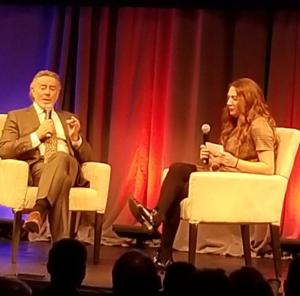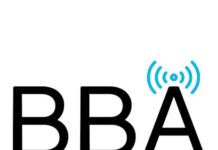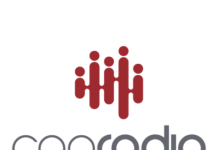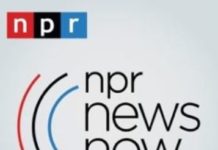
Those were the words of NPR CEO Jarl Mohn at Tuesday’s RAIN Podcasting Summit in New York City. NPR has been a dominant force in the podcating space for years so Mohn certainly knows a thing or two about the podcasting space. He was one of several big names that appeared at the summit. Former ABC News Radio Correspondent Richard Davies attended the event and filed this report for Radio Ink.
The podcasting industry is about to get another burst of mainstream media coverage, with the release of the 2019 Edison Research “Infinite Dial” listening survey later today.
In a sneak peak of the widely anticipated results, Edison President Larry Rosin, told the RAIN Podcast Business Summit in New York yesterday that more than two-thirds of Americans are now aware of the term “podcasting.” Five years ago, the number was slightly less than half. The survey is expected to show another year of steady growth. Time spent listening to podcasts doubled between 2014 and 2018.
“Podcasting is undersold,” Rosin said. If the industry was to get its “fair share” of total advertising spending, “it would be over $1 billion,” which would be more double current estimates of annual ad revenue.
The New York event for marketers, advertisers and podcast professionals included confident predictions about the industry’s future growth, but caution over barriers to discoverability and the lack of consistent audience measurement.
“The business won’t mature without standardization of metrics”, said Kerri Hoffman, President and CEO of PRX and PRI public radio. Other speakers and marketers at the summit said that while accurate audience data is critical to the success of the podcast industry, the current measurement system remains deeply flawed.
The boldest statement about future growth came from Zack Reneau-Wedeen, Head of Product at Google Podcasts. The company’s goal is to help double worldwide podcast listenership, he said. “The greatest area of creativity right now is in podcasting.”
Much of the increase in podcast listening may come in developing countries such as India and Brazil, where Android has a huge footprint among consumers.
A key part of Google’s strategy is to use its dominance in search to improve discoverability. Google Podcasts is planning to roll out search results that will include specific episodes via audio search.
While it’s easy to find video episodes and text information, said Reneau-Wedeen, “audio stories are not as accessible.” He also spoke of the need to develop more diversity in podcasting.
“We want to introduce people who’ve never listened to podcasts, and narrow the awareness and convenience gap.”
Jarl Mohn, President and CEO of National Public Radio predicted that, “in the next five years, the medium will be as big or larger than network radio.”
Another hot topic at the conference was this week’s news that a startup called Luminary has received $100 million in funding and plans to launch a subscription-based podcast service. The company aims to be the Netflix of podcasting, according to The New York Times.
But many content creators at RAIN were skeptical about putting popular podcasts behind paywalls.
“I think you can do harm to a medium when locking up content behind paywall subscriptions,” said Conal Byrne, President of iHeartPodcast Network. “The beauty of this medium is that it emerged with a very light ad load.”
Richard Davies is a former ABC News Radio Correspondent, and founder of the podcast consulting firm, DaviesContent. He can be reached by e-mail at [email protected]. Check out other articles he’s written for PBJ HERE.






There are so many up and coming podcasts out there it’s hard to say what will be the next viral one.
Podcasts will succeed wildly in some realms, but it will not be as successful as “traditional” radio in others.
In the arenas of politics and sports talk radio, people crave the newest and most current information. This is the reason for the rise of 24/7 news networks and one of the key reasons why people have been fleeing printed newspapers for online news. There was a reason for both “stop the presses” and morning delivery decades ago in the newspaper business, the public wanted the freshest news first thing.
Much of social media is designed around knowing while it’s happening, or at least as soon after as possible.
Content focused on entertainment and content that isn’t necessarily timely will flourish as podcasts, but when it comes to content which can become stale within hours, live feeds will remain the prevalent delivery choice.
Reynolds Chase, I respectfully disagree with your claim that commercial radio has failed, and disagree even more so that commercial radio has failed due to its “huge, obnoxious stopsets.” That simply is not true. Commercial radio was a TREMENDOUS SUCCESS under those very conditions, even if you might not have cared for them.
Commercial radio began to have difficulty when, and only when, deregulation allowed people who didn’t understand or even care about radio to come in and grossly overpay for radio properties in a gamble on the idea that they could trim the supposed fat of radio operations and leverage supposed economies of scale when congress allowed them to own more and more stations after the FCC violated the trust of the American people and did EXACTLY what was originally never supposed to happen to the publicly owned airwaves in an effort to make even more money than they already were making (radio was profitable when dereg began), and then sell the new “leaner” radio companies at a profit.
And what could go wrong if people who didn’t know anything about radio came in and overpaid for properties in the hopes that the savings would make up for having overpaid for the properties as they fired people who were the heart and soul of the industry?
Everything – that’s what.
So radio didn’t fail because of big spotsets or the methodology of their revenue. Radio hasn’t even failed. It is still a huge part of most of American’s lives and if the owners of most of these radio groups hadn’t grossly overpaid for their properties, the stations would be profitable. The only thing keeping them from being profitable is the NOTE for the stations.
If you sold chalkboards and your net profit was a million dollars a year and you had a warehouse that was doing the job and you were doing great. Then someone came in and said, we can do this better than you, and they paid way too much for your company, and then they fired a bunch of your workers that had been making you successful – but now, even with the savings from firing all those people (leaving the people who still work there overworked, underappreciated and worried for their jobs too) the business that was profitable before still makes a ton of money – but because that person paid way too much for it – they aren’t able to pay the note for the business and so the peanut gallery sits back and tells the chalkboard company what they are doing wrong. They weren’t doing anything wrong. The idiots who overpaid for them and put the company in a no-win situation are the ones to blame, and somehow most of them will walk away unscathed while so many workers in the industry have seen their jobs disappear out from under them or are blamed for the problems that the industry is facing. Bull hockey!
Radio WILL eventually decline, but it won’t be because of stopsets. It will be the natural progression of technology as one day it truly will be a niche as technology and innovation will supplant it. Podcasting may be one of the things that takes its place along the way, but podcasts will also peak and decline too.
There is no doubt in my mind that radio would still be a hugely profitable medium if dereg hadn’t been foisted on us by greedy politicians who were bought by greedy companies.
And I’m a capitalist and I believe in making money, but there is a point where greed tips the balance and some people are willing to take unrealistic risks and do unreasonable things that aren’t good for most people for their own benefit when they are already benefiting just fine. Radio suffered from this kind of greed. It was easily one of the most profitable industries in existence and could have continued on if not for reckless and massive deregulation.
If radio was so profitable before deregulation, why did some of the industry’s founding companies get out of the radio business ten years before the 96 Act?
It already is you dinosaurs..Do you work for Flager Broadcasting ???lost!!!
In the Online Medium, I think Conal Byrne and iHeartRadio miss the mark again….putting Podcast Content behind a paywall ENHANCES the value of the content – just as subscribers paying for their daily newspaper did for that industry! The mere fact that consumers paid for access makes it all the more valuable to advertisers – and all the more measurable/target-able online. The subscription also alleviates the need for obtrusive wads of commercials that would otherwise be needed to make delivery a profitable venture. This is a GREAT time to experiment with a variety of delivery platforms – and let the best plan win!!
Actually, I am of the opinion that if Podcasting follows the commercial radio model, the future will not be so rosey. It’s greatest chance for success will follow a subscription model or at the most one pre-roll ad before each episode. If it adopts the commercial radio model of loading up on inventory within the body of each podcast episode it will fail just as commercial radio has failed with its huge, obnoxious stopsets.